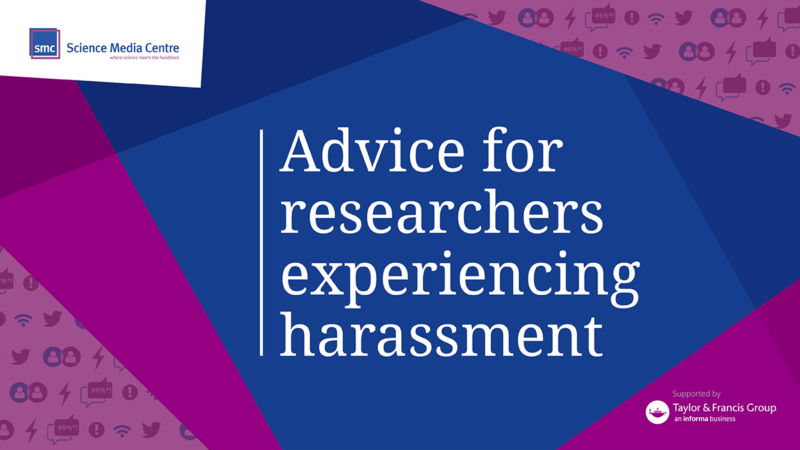New guide offers support and advice to researchers experiencing online harassment

A newly redeveloped guide is setting out to help researchers across academia tackle the online harassment some face as they share their findings with the public on some of the world’s most controversial, and vital, topics.
The guide offers clear practical tips with an added focus on how to deal with social media harassment and malicious comments on online forums. It is launched by the independent press office for high profile, controversial scientific issues, the Science Media Centre, in collaboration with academic publishers Taylor & Francis.
The updated free resource aims to give experts increased confidence to communicate their research to the public.
“Academics are increasingly using social media to share their work and engage in healthy debates with the public and, for the vast majority of researchers, these are useful and positive experiences. Some researchers – in particular those working on contentious and highly politicised areas of science – may experience harassment from people with extreme views about their work,” Freya Robb, from the Science Media Centre said, explaining the need for a re-launch of the guide, first put out in 2013.
“We know from the scientists we work with that experiencing harassment through abusive emails, libellous comments on social media, complaints to your institution or bombardment with FOIs can feel overwhelming. But it has never been more important for the public to hear from experts who can guide people to where the best evidence lies on contested issues like vaping, statins, anti-depressants and climate change. We hope this leaflet will help support and encourage experts to enter the media fray.”
The tips offered in the guide include:
- how to carefully assess the situation and focus on those you want to communicate to;
- how to tackle online abuse on social media;
- where to find support networks.
Jennifer McMillan, Director of Marketing: Content & Communications, Taylor & Francis, added: “We are absolutely delighted to have worked with the Science Media Centre to launch this guide, something which we feel is a vital issue, and which many researchers are facing on a day-to-day basis. We are very proud to be involved in an initiative which supports researchers to be better equipped to communicate their research.”

 China
China